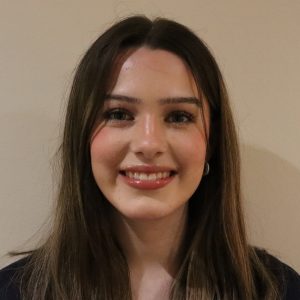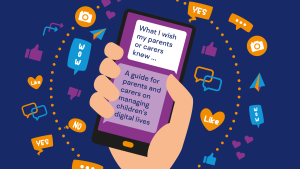Today marks the second anniversary of my appointment as Children’s Commissioner for England, and what a two years it has been!
What began with The Big Ask, which received over half a million responses (making it the largest ever survey of children and young people in the country), has led to a vision for supporting care leavers, work to shape reforms of the SEND and social care systems, two new advisory boards led by young people to shape our work, and my independent Family Review.
As Children’s Commissioner, I get up every morning determined to listen to children across the country and to reflect their voices in everything I do. A lot of the work my office carries out is directly influenced by what children told me matters most to them – that they value their community and making a better world, their health and wellbeing, their education and future jobs and skills, and their family. Every day, we ask ourselves ‘what more should we be doing?’
Being a former teacher and Headteacher, children’s education was always going to be a key priority of mine coming into role. Since 2021, I have been working hard to draw attention to the issue of school attendance, which has been impacted significantly by the pandemic. Last year, I published ‘Voices of England’s Missing Children’ which identifies the key reasons why children are not in school and provides a blueprint for school leaders and other professionals to help all children feel comfortable and supported to attend.
We have to be as ambitious for children as they are for themselves – and they tell me how important their education is for their future, as well as their present. I will shortly be giving evidence to the Education Select Committee’s inquiry into persistent absence from school, to set out my ambitious targets for 100% attendance in schools – it is a challenge for the education and care systems to prevent any child from being left behind.
I have been advising the Government, through its steering groups, on how to reform the systems of support for children with special educational needs or who interact with social care – and crucially how to make sure they are not acting in isolation. Last year, I published my formal response to the Government’s SEND Green Paper, in which I set out my vision for a system which is as ambitious for children as they are for themselves. More recently in response to the publication of the Government’s strategy for reforming care, I set out my position in a statement calling for a relentless focus on system improvement and achieving excellence in every area – we can no longer accept failure.
I have a special responsibility to young people who are leaving social care. Sadly, I have heard from many care leavers that the thought of their 18th birthday fills them with dread, rather than excitement, as they face a cliff edge of care falling away. Last year, I published my ‘Vision for Care Leavers’ in which I set out my ambitions to ensure that every care leaver has a stable, suitable home and support to form and sustain loving relationships with carers and professionals who support them.
Since coming into role two years ago, both my office and I have been working hard to ensure that children can be safe – both online and offline. The Government’s Online Safety Bill is currently passing through Parliament, and with my office I have helped to shape this legislation to strengthen it, shaping its proposals to protect children online and hold tech companies to account on online safety.
One of the most popular resources my office has produced in the last two years is a guide for parents and carers, ‘The things I wish my parents had known, young people’s advice on talking to your child about online sexual harassment‘, which draws together advice from 16-21 year olds on how parents should manage tricky conversations around sexual harassment. I have also published several surveys, including ‘Digital Childhoods’, which includes testimony from young people about their experience of the online world, and more recently ‘A lot of it is actually just abuse’, which for the first time gives us evidence of the impact that exposure to pornography is having on children and young people’s behaviours.
But it’s not just the online world where I have focused my attention. Children’s experience of policing has been a key focus for me following the Child Q case. Last year, I published analysis of data obtained from the Metropolitan Police, which revealed that the force was routinely carrying out strip-searches of children without an Appropriate Adult present. I will soon be publishing further data from all police forces in England and Wales that will show this issue is far from solved.
It is a daily privilege to be Children’s Commissioner, and I’m grateful to all the young people I’ve been able to meet in the last two years, who so bravely and honestly reflect their experiences back to me. I’m very proud of the work my office and I have done to act on the issues most important to children.
As I enter my third year in this role, I am optimistic about what lies ahead for the children of this country and the opportunities I will have to support and advocate for them.






